Feminism Didn’t Need a Rebrand
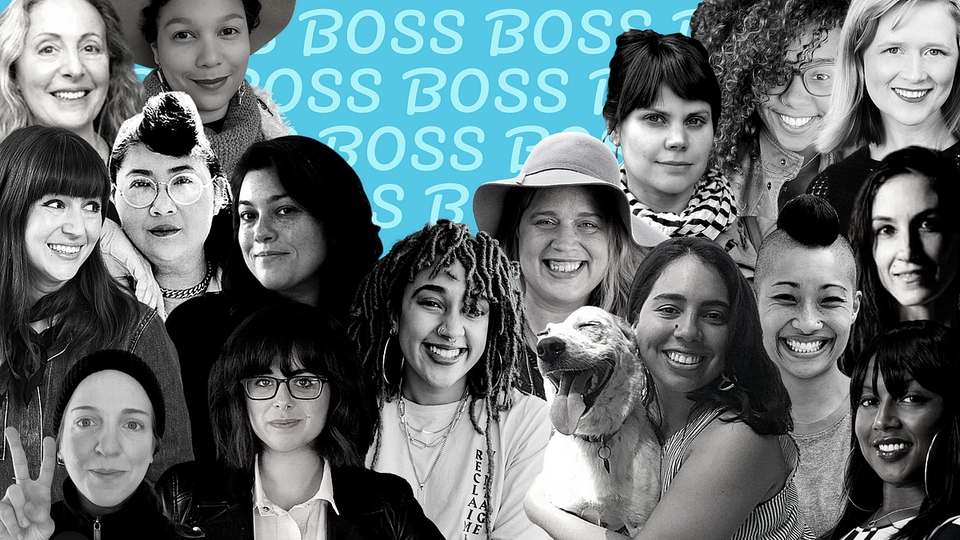
The “Girlboss” may be dead, but Feminist leaders are alive and well.
In a recent viral Medium piece, Leigh Stein declares “The End of the Girlboss Is Here.” Leigh deftly called out the inexperience many White feminist business leaders, solely there because of privilege and money, had in leading social change. Their “feminism” was for only for show, sales, and follows. As Leigh said:
“[The] women who leaned into their ambition and founded their own companies were not necessarily any more virtuous, ethical, or respectful than their male counterparts.”
Plenty of Feminists have been “doing the work” long before it was considered a marketable branding opportunity or cute hashtag. Tears won’t be shed from the word “Girl” dying from feminist businesses, (though it’s fine if it sticks around, too).
For many of us, the term Girlboss never took root in the first place.
Leigh’s popular piece, while full of accurate and necessary lessons for future founders and investors, is missing several points that paint a more thorough picture of Feminism and Capitalism in 2020. The temptation to reduce the future economy down to only two options: nonprofit altruism or greedy capitalism makes sense. But, that underestimates the benefits that come from a necessary reinvention of our current failing economy.
It is amazing how quickly popular culture and workplace trends can change, as Leigh points out. “A women-only co-working space already seems like a relic from another era.” Yet feminism and antiracism work is not an interior design trend; there isn’t just one logo.
Work has indeed changed overnight for many, but not just with the resignations of The Wing and Girlboss CEOs. Other social-justice minded leaders have been making work better while the feeds were focused on millenial pink-packaged empowerment. Without going deeper, one cannot imagine the future of work and how best to rebuild inclusive, flexible, safe, and just companies and an economy that serves everyone.
To imagine a post-pandemic economy, the future of gender and racial equality in workplace cultures deserves a bit more attention.
So buckle up. There is a lot to unpack here, but the future of gender and racial equality is not something easily covered in a shorter piece.
First, we cannot dismiss entrepreneurs who authentically explore and build social enterprise companies and truly want a world better. Let’s not leave behind Black and Brown women who adopted “Girl” or “Boss” and owned it because it has a different connotation or because it still has power. These companies, just like feminism itself, will (hopefully) persist, long after the fade of the White woman “Girl Boss,” and its partner in crime, millennial pink, follow suit.
To focus solely on millennial “Girlbosses” and their flawed or even disingenuous feminism, Leigh’s piece reduces leadership to a binary in more ways than one. Thankfully nothing is that clear cut, (across generations, across communities, nor across the gender spectrum).
There are plenty of innovative, talented, smart women, who get the intersection of race, gender, and class. BIPOC women and genderqueer are especially aware of the impact of all three. To create a better economy that works for everyone, we have to include everyone.
The marketed, shiny, Girlboss Leigh writes about was never inclusive; its name, color, and font clearly suggest the opposite. I agree with Leigh that “Feminist” companies, without true intersectionality, are simply exclusive (White) Girls’ clubs. This was exactly why the companies she referenced failed the most recent litmus test of authenticity in diversity, equity, and inclusion.
As La’ Nita Johnson pointed out in Marker, performative statements around inclusive cultures, like the recent barrage of corporate Black Lives Matter statements, are just that. Unless they include “authenticity, accountability, and action items,” as Johnson said in Marker, they are for show. Amplifying voices is great, but only if you are truly engaging and building relationships.
If instead, you’ve hired Black women but use and abuse them like “the help”, (as the women referenced in Leigh’s article did), you can’t really say your work aligns with feminism. If White feminism feels like it’s for show, it probably is.
Now on life support, the challenge was the Girlboss in Leigh’s article never truly understood her privilege. (She received $100 million from investors; most under-resourced entrepreneurs can’t get $500 grants. The majority of entrepreneurs still await Pandemic Unemployment Assistance checks).
So can we still use the label “feminist”? If we understand to our core that we can’t take down the patriarchy without taking racism with it. As Leigh says “The problem with making Girlboss feminism a part of your brand in order to appeal to customers was that those customers were going to expect you to put your values into practice.”
Being expected to live your values in your work isn’t really a problem; it’s a call to action. Can we really declare that along with the death of “Girlboss,” feminism is dead? It would take too much good work and progress with it. The Girlboss can end because it does not include everyone. Feminism, however, when it’s integrated as part of your work and aligns with your brand, does not need to go away: you simply have to walk the walk.
There are so many of us who’ve said fuck it to the systems entirely.–Kristen Rebelo, House of Rebelo
The mistakes Leigh referenced, the co-opting of Girl Power, is more than failures with authentic inclusion of Black and Brown employees. Girlboss overnight notoriety wasn’t due to activism or social justice work; it was due to Instagram and investment firms.
Leigh pits pure capitalist giants against the nonprofit social justice warriors, accurately describing the challenges of both. This very New York view of millennials and income is relatable, if a bit myopic. There are only two options for money: all or none. This leaves out all the work “conscious companies” have created over time.

We can’t forget all the people in the middle, on the fringe, or on the precipice of creating a new way of working. We can’t forget older and younger founders. We don’t have to give every dime to be “good” leaders. Whatever wave of feminism you swam in on, we need everyone, regardless of their gender expression or gender identity, supporting each other, swimming upstream to “fight the power”.
Feminism is about lifting everyone up. Intersectional feminists fight for equal treatment and inclusion of those who may be different, an essential endeavor in defining and designing a new economy.
More Than Words
The word girl, and hell even the term woman, is filled with division and exclusion. At its root “girl” defines what society wants you to be, not who you are. Gendering the name of your business may need an overhaul, depending on the term and if it is offensive to others.
More urgent rebrands based on name need to happen anyway. Let’s start with the elimination of racist brands like Aunt Jemima, and the much-needed name change to the Seattle Redhawks and Washington Redskins (FFS)!
When language evolves, this often signifies a paradigm shift, often for the better. When and how we use new words can bring challenges, but businesses like people must evolve. Attempts to expand and include more women or use more conscious, inclusive language takes work. The written language was not created by women; existing systems are built on gender binary and White supremacists foundations, and we’re conditioned to perpetuate both.
“It is very difficult to escape the deeply rooted gender stereotypes, and many such linguistic attempts backfire…” Magdalena Zawisza, on the controversies that resulted after “Girl boss” started.
As a writer, for example, I prefer womxn over women. Algorithms, SEO, autocorrect, and dictionaries do not. This makes my feminist blood boil, but I choose to leave women as is in my publishing. Patriarchal systems run deep and we have to pick our battles. Right now, it’s more important to get the message out there. For the sake of this piece, using women was a conscious choice but not my preference.
Like all choices, founders can choose their own terms. I happen to love Sharon Beason, founder of Womeneur. Her company and content rock, and I have learned a ton from her, even if I personally don’t want to aggregate women and business into a word. So while it’s true language must evolve, it is up to each person how they identify, and what words, labels, or pronouns they prefer.
Much like exploring how one aligns themselves with words like “Woman” and “Feminist,” I struggled on the usage of “Girl” for a grownup. (My personal Instagram mirrors my outdated AOL 1997 messenger name, bluegirl, and shows how long the word has persisted). In contrast, I cut the word “Girl” from my company name, deciding any work towards gender parity starts with more inclusive language. It’s a personal choice.
Unlike “Girl” or “Woman”, Feminism, I would argue, is an ideology you choose to align yourself based on certain principles. There are no principles exclusive to gender. Feminism is (or at least it should be) genderless…the core message is equal treatment of everyone, regardless of gender. You can be a feminist (maybe anti-sexist instead?) and an antiracist, without being a girl. I would certainly hope my son identifies as both, as much as my daughter does.
While many -isms should be eradicated from practice and communication (facism, racism, totalitarianism), I prefer to think of feminism (and capitalism which we will address later) desperately needs to change with the times. Some -isms don’t need to be abandoned; they need to keep up with social progress. (I can believe in equality, eat bacon, be an atheist, and still find community in liberal Judaism.)
If we define Feminism as someone who believes in equality for the benefit of EVERYONE, go ahead. Call me a Feminist. With a capital F.
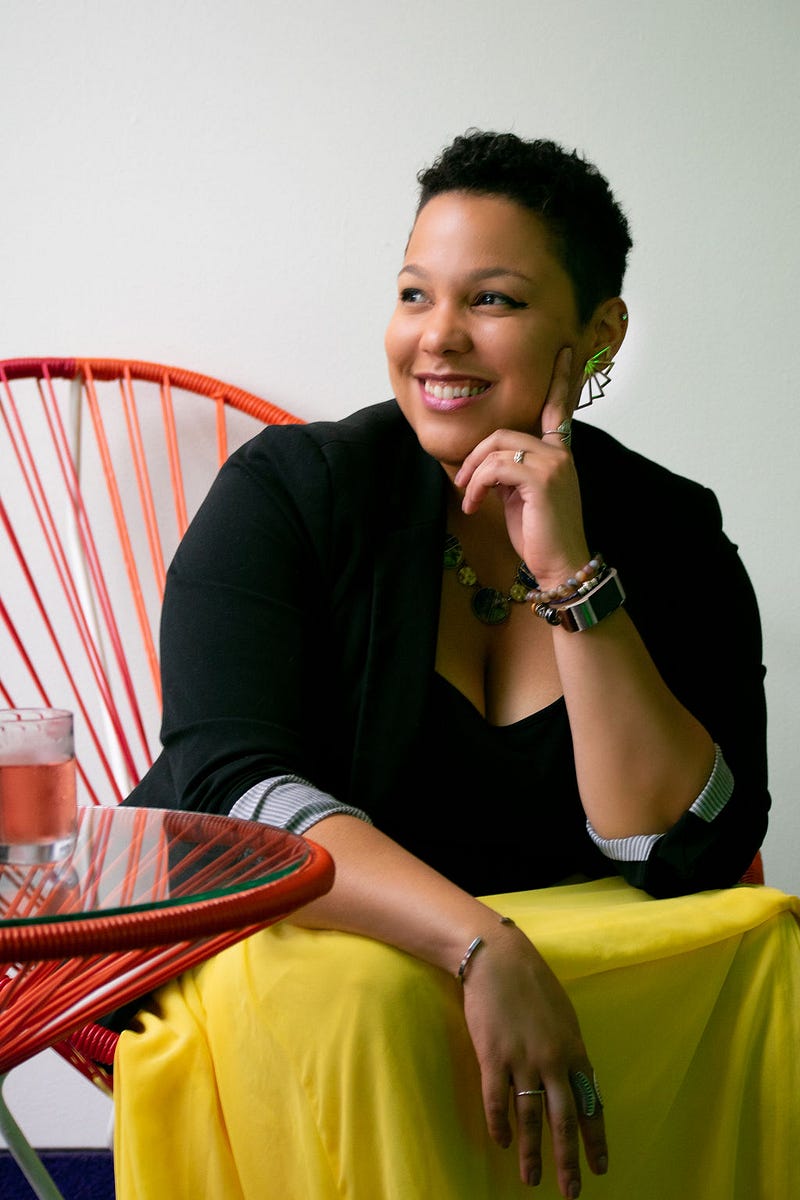
Rachel Wynn, entrepreneur, feminist, speaker, dog lover, democratic socialist, archer, maternal health advocate; photo by Danielle Leong
Please Don’t Forget Gen X
The End of the Girlboss also leaves out key distinctions about other generations of working women. Gen X-ers, often referred to as “America’s middle child” are not ironically forgotten. 52.7 million Gen X-ers are in the workforce, many of whom are mentoring and managing their younger employees. Yet, “Sixty-seven percent of Gen X leaders are also effective in “hyper-collaboration,” and are working relentlessly to break down organizational silos,” according to “Generation X — not millennials — is changing the nature of work.”
Like Gen X-ers who Lead with Purpose, Millennials are driven by wanting to make a difference in the world. Millennials who are 1/3rd of the workforce should not have to choose to make money OR do good. In fact, boomers who are still in the workforce can be more likely to be purpose-driven because they have a more broad view of their impact and society as a whole. Everyone should be able to make money and make a difference.
Many Xers have opted out of trying to fit into corporate culture and have gone out on their own.
“The X generation has proven more entrepreneurial than any of their predecessors; more than 1.5 million of the 5 million people who started businesses in 1996 were younger than 30, with nearly 800,000 under 25 (Parker 1998). Most young entrepreneurs say that they did not start a business primarily to get rich, rather they put the emphasis on autonomy.”–Generation X in the workplace: age diversity issues in project teams
Plenty of women in business, regardless of their age, were never that into the term “girlboss.” We never wanted to be mompreneurs or have pink logos. We don’t call ourselves mommagers or “working moms,” (because our partners are NOT called “working dads”). We are more than ok for “She-E-O” to fade away, just like “boyboss” did! (Oh wait — that didn’t exist.)
It goes without saying, we White women do indeed need to do much better in the workplace. Entrepreneurs and leaders should want to do better with efforts to improve DEI. We must start by acknowledging our shortcomings, make real attempts to repair, and listen to Black and Brown women. If you are trying to figure out how to build equitable communities on your own, that is White supremacy incarnate: only you could possibly have the answers.
Leigh doesn’t mention the ones who are creating better work cultures, IRL, right now.There are plenty of leaders exist as models for “doing the work,” even if they didn’t get funding or PR. Entrepreneurs and other leaders should be leveraging knowledge and work that existed long before the millennial GirlBoss and the “great awakening”.
The key leaders The End of the Girlboss forgets many leaders with the experience and perspectives needed to improve how we work. It leaves out authentic, experienced Boomers in leadership.
Gloria Feldt, Cindy Gallop, and Colleen DeCourcy, have paved the way, seeking out and amplifying a new generation of diverse voices in business, and pushing for marginalized groups to get paid. Tina Tchen, Rosa Clemente, and Turana Burke use their activism and professional prowess to continue to voice the need for safety and equality for women.
Following the lead of these powerhouses to change a very antiquated, male-dominated workforce, they exemplify how future leaders can use their privilege and power to speak up and give fewer fucks. They also show how long it can take in your career to be seen as a credible expert, especially as a woman.
Building better companies through antiracist and feminist social justice practices are not just “on-trend,” as Leigh seems to suggest in her piece. As every single Chief Diversity Officer of literally any company on LinkedIn will tell you, the information needed to create equity at work has been available for years.
Racial equity consultants like De-Dee Loftin Davis, Tai Harden-Moore, Tia B. Coachman, Yolanda Fraction, and many more listed here, have jobs to train leaders and companies not because it’s trendy. They have a career history of trying to improve broken corporate cultures. Leaders who want successful, functioning, equitable orgs need to listen and act accordingly.
Feminist leaders reach beyond the people in our default networks. We amplify and hire people that are different than ourselves, not because it will improve revenue. We do not build social enterprises because of the “business case for diversity” (barf). We do so because it is simply the right thing to do and makes everyone’s lives better.
We align with the feminist movement because we recognize the importance of lifting up all marginalized communities. We know including everyone is the best path forward.
2020 was just the tipping point to expose those who were faking it.
Impact and Intersectionality
Leigh also forgets the needle movers: social justice entrepreneurs who have made incremental changes in the way we build and operate our startups, slowly but surely, after years of re-education. AND worse, it dismisses Black and Brown women who have built successful empires with these words (hustle, SheEO) to thrive in a system designed for White people, specifically those branded as “Female Founders.”
If we’re trying to move the needle, why does the system persist, even if we don’t align with its culture or terms? We may not intentionally perpetuate the Patriarchy or a White supremacist economy, but we have been conditioned to keep it going.
We live and work in the systems as they exist.
We all need to work together to take it down brick by brick. That comes with intention; intersectional feminism is the catalyst. I am an anti-racist feminist, and the question is, why aren’t we all?
For too long, the “business world” has overlooked the untapped potential in underrepresented and non-mainstream entrepreneurs. Many talented (BIPOC and White) change agents immediately come to mind. Dr. Rasheda L. Weaver, Tiffany Golden, Tia Coachman, Jen Macias De La Parra, Annika Hansteen-Izora, Nic Strack, Blessing Adesiyan, Dez Ramirez, Madison Butler, Shara Raqs, Nadya Okamoto, Jodi-Ann Burey, Lindsey Murphy, Knatokie Ford, Jasmin Burton, Fran Bittakis, Trenelle Doyle, Denise Branch, Sue Kim, Rachel Wynn, Ty Chance, and Isis Lopez, along with Claire Fitzsimmons, LaKay Cornell, Radha Friedman, Karen Fleshman, Jillian Cohan Martin, Gillian Sisley, Amanda de Cadanet, Tara Furiani, Tori Wheeler, Jenna Hope, Kristen Mico, Moira Losh, Phoebe Owens, Eden Dawn, Amy Merrell, Patti Maciesz, Gillian Davis, Sarasvatti Hewitt, and Jessica Outlaw, are just some of the social entrepreneurs, needle movers, and activists transforming industries and creating new workplace cultures.
The Girlboss may be dead, but these bosses are still kicking butt.
These leaders continue to put in the work. They understand that marginalized communities do not have the luxury to wait on huge systemic institutions and corporations to change. Building cultures where everyone can thrive and survive depends on change-makers who push the envelope today.
For example, take Fran Bittakis ฟราน ศิริภัณท์ บิทากิส, founder of Snac Block and JOOP JOOP, a “Radical Creative Agency”. She is about as rad and driven as they come, mentoring trans youth, giving back, feeding protestors, and creating intersectional events.
Yet her creative and talent agency, (with Queer and non-binary BIPOC film production crew), is not funded. She is an activist and creator and doesn’t fit in a box that VC’s or agencies recognize. Despite many qualified applications, Fran has yet to receive one grant.
Put someone else in power who has not had that opportunity, and do what you can to mentor them through that process with your fertility and ego left at the door. I want my work to stand for this — to show the world my community is worthy and always has been.–Fran Bittakis
By all accounts, Fran is what a multidisciplinary “diverse” entrepreneur looks and sounds like. Many bosses like Fran persist in “doing the work.” They improve inclusivity in biased industries. They give back in money and time. They put effort into creating communities and patiently educating others.
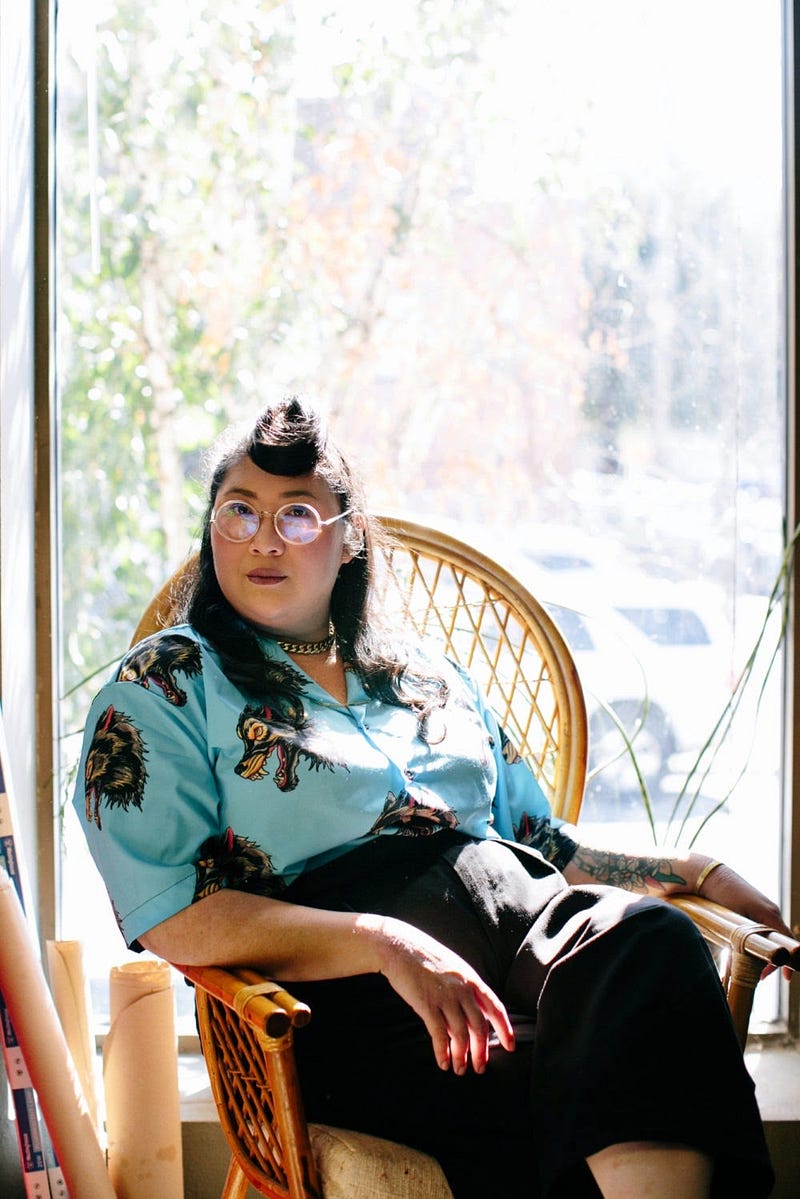
We can no longer ignore creators and innovators, especially QTBIPOC individuals who break the mold. True social enterprises remain unfunded, fighting to survive the pandemic. True intersectional feminists have companies that deserve an infusion of attention and money. Just because wealthy investors focused on the wrong women prior to 2020, doesn’t mean feminism and social justice has no place in business.
Fake feminism didn’t sell. That doesn’t mean women can’t make money while doing some good.
Money is power.
It is tough to effect change when you are not recognized as a worthy investment. Most “Girl Bosses” never get funded. They will never see a dime from the recent Pandemic relief money (which leaves behind 75–98% women of color). Any entrepreneur named in this article would make for a better investment than most of the startups and “Girl bosses” VC’s funded prior to 2020.
Yet, connected White women with a certain pedigree, like the Venture Capital funded Audrey Gelman, who founded the initially successful, recently crest-fallen, The Wing examined in Leigh’s piece, are the ones who get loans.
Most social entrepreneurs did not come from PR, and their connections are to other social justice entrepreneurs, equity and sustainability advocates, and nonprofits (re: not rich.)
The VCs were, and are, a huge part of perpetuating the problem of racial and gender gaps because guess what — their leaders are 98% White men. White supremacist systems will continue to invest and amplify voices of those benefitting from White privilege unless we Feminists amplify each other and “lift every voice,” especially Black women.
Lack of funding for women-owned businesses is a huge challenge and barrier to success. Stark data continues to come out weekly about the impacts to jobs and small businesses for women and BIPOC employees and owners.
[As] job losses linked to the coronavirus pandemic dwarf what the country experienced in the 2007–2009 crisis, the heaviest toll is falling on women.–“Women have been hit hardest by job losses in the pandemic. And it may only get worse,” by Samantha Schmidt
How then can marginalized leaders who run mission-driven work have an impact with no money.
Many innovators, creators, technologists, researchers, and business leaders did recognize the need for change, long before Girlboss was a thing, and before its funeral. Our “work” and “progressive (personal) growth” happened in tandem. Unlike Gelman, our intersectional feminism was not just a strategy on paper.
But, without funding in a capitalist economy, entrepreneurs will continue to struggle to dismantle and rebuild racist and sexist systems.
Being dismissed by VC’s, however, could be a blessing in disguise. Progressive, intersectional feminist entrepreneurs would be indebted to the wrong system. VCs are part of the old capitalist guard. Social entrepreneurs and innovative thinkers don’t need constraints. They need time and freedom to do real work to move the needle. If we want equity in the workplaces, we need new, inclusive, and smarter models of funding.
“The future of work is now.”–Jodi-Ann Burey
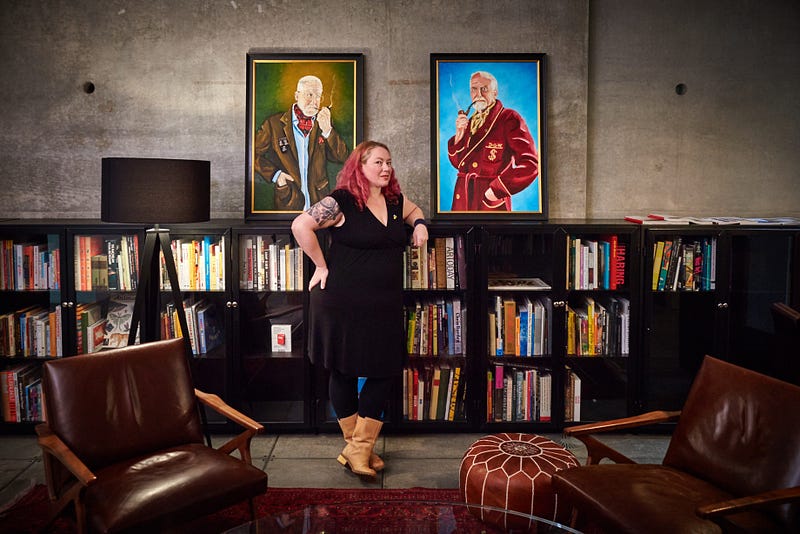
Profit is not Poison
Capitalism isn’t dead. But, it does need to be torn down; clearly it’s not working for everyone. We must rebuild it like every other institution or practice built on White supremacy. Women, especially women of color, have been screaming about the need for a radical transformation in business operations, leadership, structure, and financing for decades.
While VC funding may not be the answer, nonprofits are not a panacea to end greed, racism, sexism, or inequalities in America.
Nonprofits, like Philanthropy, were created and still operate within a sexist, White Supremacist Patriarchal Capitalist society designed with the idea that women and anyone nonwhite should NOT be allowed to hold onto any wealth.
The result: nonprofits are also plagued by large gender and racial imbalances in employment, funding, grants, donors, leadership and volunteers.
According to Lyndsey Hrabik on The Nonprofit Hub, “The vast majority of workers and volunteers are women — 75 percent as of 2011,” yet in leadership the number drops to 45% women. And yet, gender imbalances in leadership is not the biggest issue that plagues nonprofits.
There are prolific instances of racism and inequality for Black and Brown women employed within nonprofit organizations. Black and Brown women are systematically shut out of the very social justice agencies designed to serve those most in need.
501c3’s when run well, can do great work…but giving away all your profit is not the only way to give back. Social enterprise is a legitimate front runner for building a better post-pandemic economy and transforming capitalism. Social enterprises appeal to workers from all generations because companies are built on and operate by a set of defined values and drive towards a specific purpose.
Leaders who take performative actions are not usually found in social enterprise because there is a lot of complexity and intention needed to create the future of work. While admitting she is less familiar with the structure, Leigh dismisses B Corps as fake do-gooders in the same way Girlbosses are dismissed as fake feminists.
There’s no way of faking it in social enterprise; you can’t brand yourself a do-gooder and then do nothing. Posting Black Lives Matter, when your company is racist is something consumers will no longer tolerate.
Yet, the reason for the rise of social entrepreneurs stems from one of Leigh’s biggest gripes: “There was no money in what I wanted to do…I couldn’t find any organization that would pay me to do this.” That is precisely the kind of problem social entrepreneurship solves.
B Corps aren’t only about making a profit off of a social justice message. If anything, it’s quite the opposite. B corps have a rigorous process to ensure leaders look at literally every tiny facet of their business including where they bank, how they self govern, who they hire, promote, and mentor, and how they provide benefits that create equity, access, and inclusion. In addition they must consider the environment and their community.
B Corps have to spend profits wisely, and by going through a certification like that, the company is being responsible at all levels. Social enterprise has been on the rise for over 25 years because it’s the right thing to do. Companies focus on the triple bottom line: “profits, people and planet” ensuring a holistic view of why they are in business.
Sure, there may be altruistic ways to support ourselves and close the wealth gap. But, it’s quite possible, given the trajectory of other social states, we will end up on bread lines, and corrupt men will still hold all the wealth. Going full on socialist would likely be too radical considering how well Americans do with absolutes (see quarantine or mandatory masks).
Capitalism, like feminism, can survive if it is truly serving everyone.
We still need more social programs, equity, reparations, closing loopholes for corporations, and to solve for growing wealth inequality around the globe. We need to say goodbye to billionaires and ensure capitalist companies invest wisely in “social good.”
To fight White supremacy and the patriarchy, Feminism that includes everyone and is truly intersectional is just what the doctor ordered. We must create racial and gender equity and true economic empowerment (re: justice) in business (and in politics, nonprofits, education, and healthcare); we can’t sit back and wait to see what happens next.
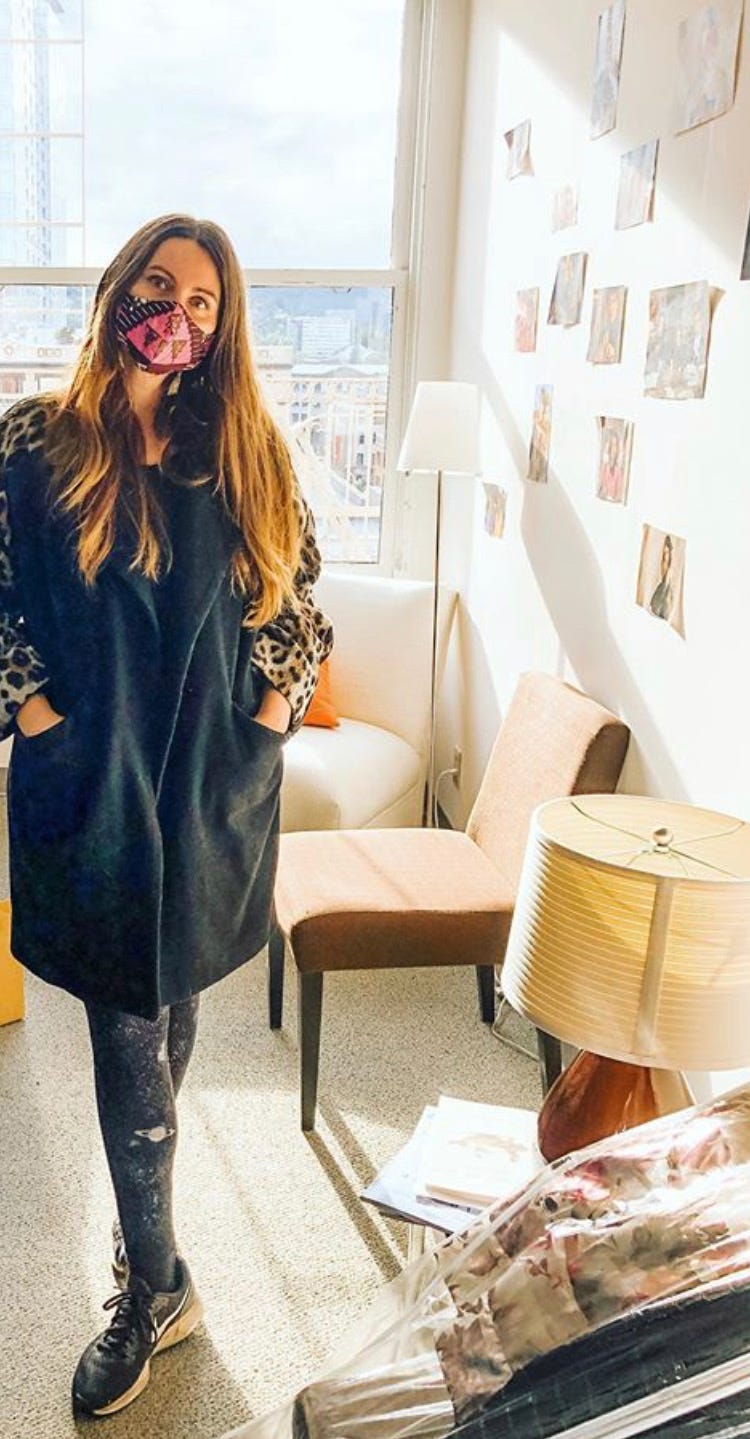
The Reinvention of Companies
We have to be methodical which is exactly how social enterprise operates; it’s a long game.
For real change to take hold, we must plan and measure for impact. We must build intentionally. DEI plans are not quick 1 day trainings. They are several years’ worth of effort, and backed by actual budgets. If done right, companies are not tapping into the latest “fad” of social justice, especially antiracism. You can’t learn about bias in a day.
B corps are extremely intentional, and they get to pay living wages instead of perpetuating an altruistic idea that to do good you must go broke. Like shifting power and changing policies, building companies that both help society and make money takes planning.
The thing is, money has and will decide for some time who has the power. With money and power comes the ability to create policies that impact everyone. To create the change needed to save “people and planet”, and to redefine what we as humans value most, we need to take the power back first. Changing policies and culture will require turning a profit.
Conscious companies and purpose-driven leaders are not found in overnight success stories. They are not a flash in the pan because it takes years of work to plan how to build and operate differently in all areas, and genuinely try and check your privilege to amplify others. (To be fair “conscious” is another word gone astray, as Phoebe Owens will tell you).
“[we] might disrupt the passage from our critique of economism to identity politics by integrating the struggle to transform a status order premised on masculinist cultural values with the struggle for economic justice.”–from “How feminism became capitalism’s handmaiden — and how to reclaim it” by Nancy Fraser
To rebuild a better economy (after so much more damage has been done to widen wealth, wage, racial and gender divides), the way forward is with intention. Feminists must stand tall, link arms, and be strategic. White women need to own our privilege and use it to lift up everyone else.
We must be straight forward in defining, outlining, planning, and paying for the transformations that are needed to achieve racial and gender equity. Per Dēmos’ Racial Equity Transformation report on their journey to change their org, “Clearly articulating, in writing, the rationale for racial equity has been absolutely critical to the success of this organizational transformation.”
Feminism isn’t just about creating equality through access or wealth; pay doesn’t always equal being valued, but it sure helps. I’ve never heard a White man say he just wants his ideas taken seriously. It’s about worth. Do you know yours? Can you articulate your value proposition? What’s the thing that you contribute! What makes your work special? We want to be paid. Unapologetically, in large sums, now. As Cindy Gallop says, “Fuck you. Pay me.”
Sage advice for all women, all the time, everywhere.
The majority of experts on gender and racial equity agree a women’s work and time need to be seen to be valued. Change agents like Eve Rodsky, and Ae-jin Poo help make invisible labor and domestic work seen, but that does not necessarily equal worthiness. In America, if it is not compensated monetarily it is not truly valued.
Until it is shared equally, given the proper respect, or paid back in equal time, seeing the mental load on top of working won’t get us far enough. Being seen has never been a woman’s preferred way of being valued anyway.
What can we do with thanks, compliments, and praise? We want money, political power, credibility, agency, and autonomy; that is how we become equal.
Sadly, we remain stuck between the future promised land. Feminists still fight for (fair pay, equal opportunity, socially conscious companies, racial justice, and caring, thoughtful leadership) yet change is glacial; the stark realities of the lack of pay and opportunities for women, especially Black women, well, suck.
And yet, while progress is slow, this isn’t a sprint. We can’t return to the good old days of 2019 or 2007. The “good economy” has yet to exist for working women, essential workers who are 2/3rds women, and mothers (working in or outside the home). The rush to reopen is just the latest example of a failed economic system serving the few while harming the many.
Many self-defined Feminist women, (regardless of identity in terms of race or gender), support dismantling systems that do not benefit everyone. So let’s reimagine it, from the ground up, with people at the heart. Systemic issues plague every single industry. We need entrepreneurs working on every problem, in every sector.
Take care of the planet, take care of each other, and hire and promote more Black and Brown women as you grow.
And go get fucking paid.
*This article has been edited. Original published version incorrectly identified Cindy Gallop as White. She kindly corrected me that she is half Chinese.
**If there are other inaccuracies around gender or race, or better language to use, please leave a comment or DM me on Twitter @coflowco; I will revise.


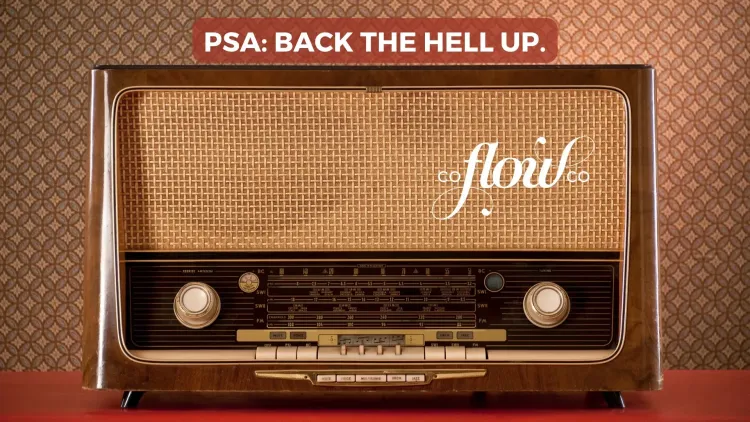
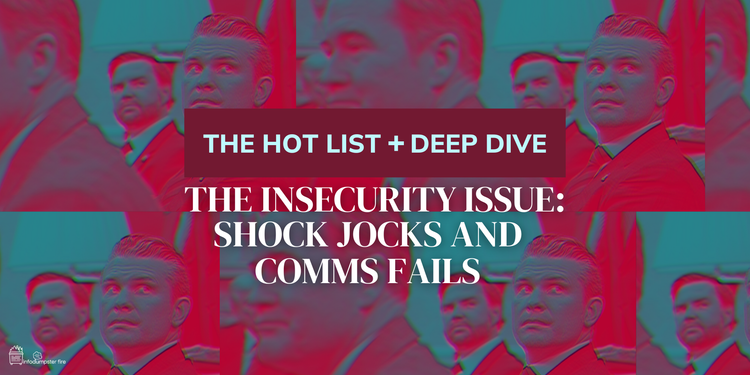


Member discussion